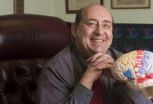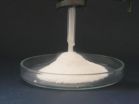The psychology of financial decision making and economic crises
2010-09-22
(Press-News.org) How could the current financial crisis have happened? While fingers have been pointing to greedy banks, subprime-loan officers, and sloppy credit card practices, these are not the only contributors to the economic downturn. A new report in Psychological Science in the Public Interest, a journal of the Association for Psychological Science, examines the psychology of financial decision making, including the role of risk in making economic choices, how individuals behave in stock and credit markets, and how financial crises impact people's well-being.
Risk taking is a very important component of financial decision making—If we take out a big loan, will we be able to pay it back? Should we buy shares of a company that is unknown but has potential for great success? In this report, authors Tommy Gärling (University of Gothenberg, Sweden), Erich Kirchler (University of Vienna, Austria), Alan Lewis (University of Bath, UK), and Fred van Raaij (Tilburg University, The Netherlands) note that when it comes to making decisions under uncertainty, people tend to be more influenced by perceived risk than by objective risk. People who are extraverted and high in sensation seeking are likelier to take more and higher financial risks than are people high in conscientiousness and anxiety. "The general implication is that financial crises may have more serious consequences for people who are more likely to take financial risks," write the authors.
Efficient-market theory states that stocks should always be traded based on their real value. However, 5 minutes on the floor of the New York Stock Exchange reveals a different reality: Stock investors overreact to news (especially of events that threaten the world economy), selling winning stocks too soon while hanging on to losing stocks too long, and following other traders' leads in buying and selling stocks. According to Gärling and his colleagues, stock market investors are prone to cognitive biases (such as overconfidence), which are reinforced by affective and social influences and these may contribute to several phenomena observed in stock markets (e.g., volatility of stock prices, due to excessive trading).
Many people rely on credit, not just the plastic card kind, but also in the form of automobile financing and loans from friends. Credit use involves many different stages of decision making, including deciding whether or not to purchase a product using credit and determining a strategy for paying back the borrowed money. The authors observe that "many credit users are facing a complex task when they decide to take up credit and that they often fall prey to cognitive errors when anticipating their experiences with credit payback."
Financial crises take a large toll not only on people's wallets, but also on their behavior. Consumer confidence affects spending and saving. Individuals cope with financial crises in a number of ways, for example by shopping in cheaper stores and eating out less. Making lifestyle changes (e.g., selling the car, making their own clothing) is very difficult for most people and is often a last resort to dealing with economic troubles—these changes clearly signal to themselves and others that they are struggling financially.
Are financial crises inevitable? The authors argue that bringing about change in financial institutions may not be easy, but they offer suggestions for improving economic decision making. For example, educating consumers—by offering economics courses to children in school and teaching consumers how to appropriately handle credit—and by making financial institutions more responsible (e.g., banks offering Web-based programs to assist with budgeting).
###
For more information about this study, please contact: Tommy Gärling at tommy.garling@psy.gu.se.
Psychological Science in the Public Interest is a journal of the Association for Psychological Science. It publishes an eclectic mix of thought-provoking articles on the latest important advances in psychology. For a copy of the article "Psychology, Financial Decision Making, and Financial Crises" and access to other Psychological Science in the Public Interest research findings, please contact Keri Chiodo at 202-293-9300 or kchiodo@psychologicalscience.org.
END
ELSE PRESS RELEASES FROM THIS DATE:
2010-09-22
Alexandria, Va., USA – Dental caries is a highly prevalent disease that is disproportionately distributed in the population. Caries occurrence and progression is known to be influenced by a complex interplay of both environmental and genetic factors, with numerous contributing factors having been identified including bacterial flora, dietary habits, fluoride exposure, oral hygiene, salivary flow, salivary composition, and tooth structure. Previous reports have characterized the influence of the genetic variation on taste preferences and dietary habits.
In an article ...
2010-09-22
ROCHESTER, Minn. -- A new Mayo Clinic study found that nerve inflammation may cause the pain, numbness and weakness following surgical procedures that is known as postsurgical neuropathy. The development of postsurgical neuropathies is typically attributed to compression or stretching of nerves during surgery. This new research shows that, in some cases, the neuropathy is actually caused by the immune system attacking the nerves and is potentially treatable with immunosuppressive drugs. The study was published in this month's issue of Brain.
Postsurgical neuropathy is ...
2010-09-22
The water in the canals and irrigation channels in the L'Albufera Natural Park in Valencia contain cocaine, ecstasy and a further six drugs. This has been confirmed by a study carried out by researchers from the University of Valencia (UV), who have issued a warning about the continued presence of these substances on wildlife and human health.
"The results confirm the presence of drugs such as cocaine, amphetamines, codeine, morphine and cannabis in the surface waters of the L'Albufera National Park at levels ranging between 0.06 and 78.78 nanograms/litre", Yolanda Picó, ...
2010-09-22
Children conceived by in vitro fertilization (IVF) perform at least as well as their peers on academic tests at all ages from grade 3 to 12, according to a new University of Iowa study.
In fact, the study, published in the October issue of the journal Human Reproduction, found that children who were conceived by IVF actually scored better than age- and gender-matched peers on the Iowa Test of Basic Skills and the Iowa Test for Educational Development (ITBS/ED).
"Our findings are reassuring for clinicians and patients as they suggest that being conceived through IVF ...
2010-09-22
What if there was a drug that could completely eliminate airborne disease transmission that occurs when someone coughs? Researchers at the University of Alberta believe they have found a way to achieve this.
The idea behind this work came from Malcolm King and his research associate Gustavo Zayas, who work in the Division of Pulmonary Medicine at the U of A's Faculty of Medicine & Dentistry. King and Zayas developed a drug that, when inhaled, would reduce or eliminate the amount of droplets, called bioaerosol, coming out of the mouth when a disease-infected person coughs. ...
2010-09-22
Scientists are reporting the development and successful initial testing of a new form of methotrexate — the mainstay anticancer drug — designed to be given as nose drops rather than injected. It shows promise as a more effective treatment for brain cancer, they say. The report appears in ACS' Molecular Pharmaceutics, a bi-monthly journal.
Tomotaka Shingaki and colleagues note that brain cancer is difficult to treat, partly because current anticancer drugs have difficulty reaching the brain. That's because the so-called blood-brain barrier (a protective layer of cells ...
2010-09-22
We've all heard the saying about people who can't walk and chew gum at the same time, but it turns out that walking and talking is difficult enough, especially for people with Parkinson's disease who are at increased risk for falls with injury.
A new Florida State University study found that older adults with Parkinson's disease altered their gait — stride length, step velocity and the time they spent stabilizing on two feet — when asked to perform increasingly difficult verbal tasks while walking. But the real surprise was that even older adults without a neurological ...
2010-09-22
The antibacterial ingredient in some soaps, toothpastes, odor-fighting socks, and even computer keyboards is pointing scientists toward a long-sought new treatment for a parasitic disease that affects almost two billion people. Their report on how triclosan became the guiding light for future development of drugs for toxoplasmosis appears in ACS' monthly Journal of Medicinal Chemistry.
In the study, Rima McLeod and colleagues point out that toxoplasmosis is one of the world's most common parasitic infections, affecting about one-third of the world population, including ...
2010-09-22
Researchers from the Cardiac & Vascular Institute at NYU Langone Medical Center will present at the Transcatheter Cardiovascular Therapeutics (TCT) 2010 scientific symposium on September 21-25, 2010 in Washington, DC. They will be available for interviews during the conference.
Louis Miller, MD
Interventional Cardiology Fellow, Department of Medicine, Leon H. Charney Division of Cardiology at NYU Langone Medical Center
Wednesday, September 22, 2010
Presenter
•Very Long-term Clinical Follow-up After Fractional Flow Reserve-Guided Coronary Revascularization, ...
2010-09-22
An unusual substance known as "dry water," which resembles powdered sugar, could provide a new way to absorb and store carbon dioxide, the major greenhouse gas that contributes to global warming, scientists reported at the 240th National Meeting of the American Chemical Society. The powder shows bright promise for a number of other uses, they said. It may, for instance, be a greener, more energy-efficient way of jump-starting the chemical reactions used to make hundreds of consumer products. Dry water also could provide a safer way to store and transport potentially harmful ...
LAST 30 PRESS RELEASES:
[Press-News.org] The psychology of financial decision making and economic crises


